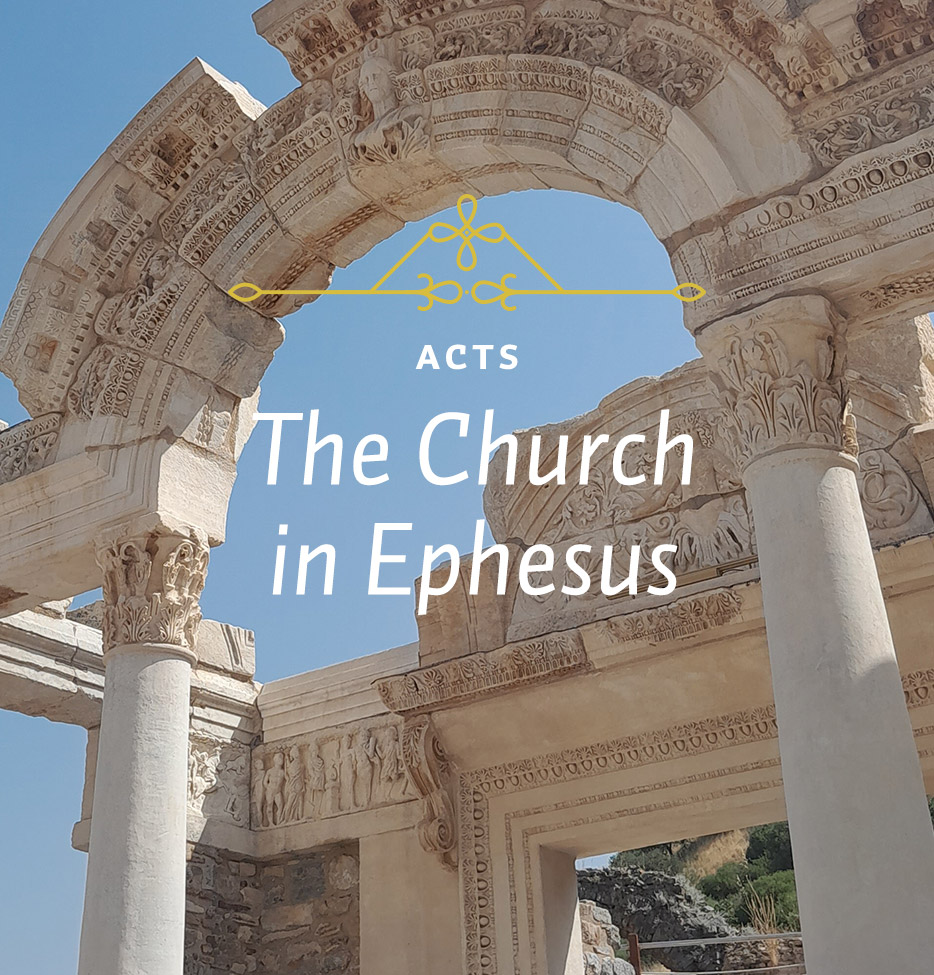Ephesus was so strategic that it is surprising that Paul had not gone there before, especially since he had already been in the Roman province of Asia, where Ephesus was located. The reason, as we have already seen, is that the Holy Spirit had stopped him from doing so, having had other work for him to do first. He was starting out in that direction after having left Galatia on an earlier missionary journey, but the Holy Spirit turned him away. Next he tried to go into Bithynia, but the Holy Spirit stopped him from going there. He pressed on in the only direction left open to him and eventually arrived at Troas where he received the vision that took him into Europe. His ministry in the Greek cites of Philippi, Thessalonica, Berea, Athens and Corinth followed. Now at last, he finally returns to Ephesus and begins what became an extraordinary time of blessing in that city.
Ephesus was a port city. Today the port is silted up, and Ephesus is located three or four miles inland from the present coastline. When the port silted up, Ephesus lost its commercial advantage. But at the time Paul was there, the city was at the height of its glory. It had about one third of a million people, which for an ancient city was a large population. It had a theater, which has been excavated and which I have seen. The theater seated 25,000 people.
Then, too, Ephesus was noted for its great temple of Diana or Artemis. The temple of Diana was known as one of the “Wonders of the Ancient World.” It was lost to history for a time, because it ended up twenty-five feet beneath the surface of the ground due to the destruction and rebuilding that had gone on at that site over the centuries. But in Paul’s day it was in full beauty and at the height of its influence. It was as extensive as a football field, and it was the center of much superstitious religion and cult prostitution, which was common at such temples.
Ephesus, you will remember, is mentioned first among the seven churches of Revelation, and this is probably significant. It probably means that among these seven important cities, all of which were outstanding for one reason or another, Ephesus was of first rank.
Paul’s ministry in Ephesus is significant in providing us with a pattern of how we might minister to cities today.
The first thing Paul did was establish initial contact with the people. This initial contact is not described in chapter 19, which we are studying, but in chapter 18, verses 19-20. Paul had been at Corinth for a year-and-a-half and was now on his way back to Jerusalem and Antioch to report on his second missionary journey. On the way back he touched down at Ephesus and began to teach there. The text says, “He…went into the synagogue and reasoned with the Jews” (v. 19). When he had to go on, he left Priscilla and Aquila behind.
I do not know exactly what Paul’s motives were in this initial contact with the city, but I suspect, in view of the way it is described, that he was conducting a reconnaissance. He went to Ephesus to see what the city was like and to explore the potential for establishing a church as a base for proclaiming the Gospel throughout Asia.
Acts 18:20 tells us that, as a result of this initial teaching, the Jews of Ephesus asked him to spend more time with them. In other words, he had a fairly decent reception in the synagogue. That would be significant to Paul, because in other places, in a very short amount of time, he provoked such opposition that he had to leave and, in some cases, was driven out of the city. That did not seem to be happening in Ephesus. So although, when they wanted him to spend more time with them, he said, “No, this is just a brief visit; I’m on my way to Jerusalem,” he nevertheless promised to “come back” later (v. 21).
I think we are also to surmise that Paul was doing a reconnaissance by the fact that he left Priscilla and Aquila behind. If the situation had not been promising, we would have expected him to say, “Oh well, nothing seems to be happening here. Come with me. We’ll go to Jerusalem, and then we’ll start out again and find another place to labor.” Instead, since there seemed to have been a good reception, he said to them, “Why don’t you stay here? I have to go, but I’ll be back. And in the meantime, why don’t you see what you can do?” That is exactly what they did.
Moreover, Aquila and Priscilla were helped by an Egyptian named Apollos. Apollos was a learned Jew, but Aquila and Priscilla also helped him. His knowledge of the Gospel was limited and so they taught him further. But in the meantime he taught in the synagogue, and the ground was thereby prepared for what Paul came to do later.






